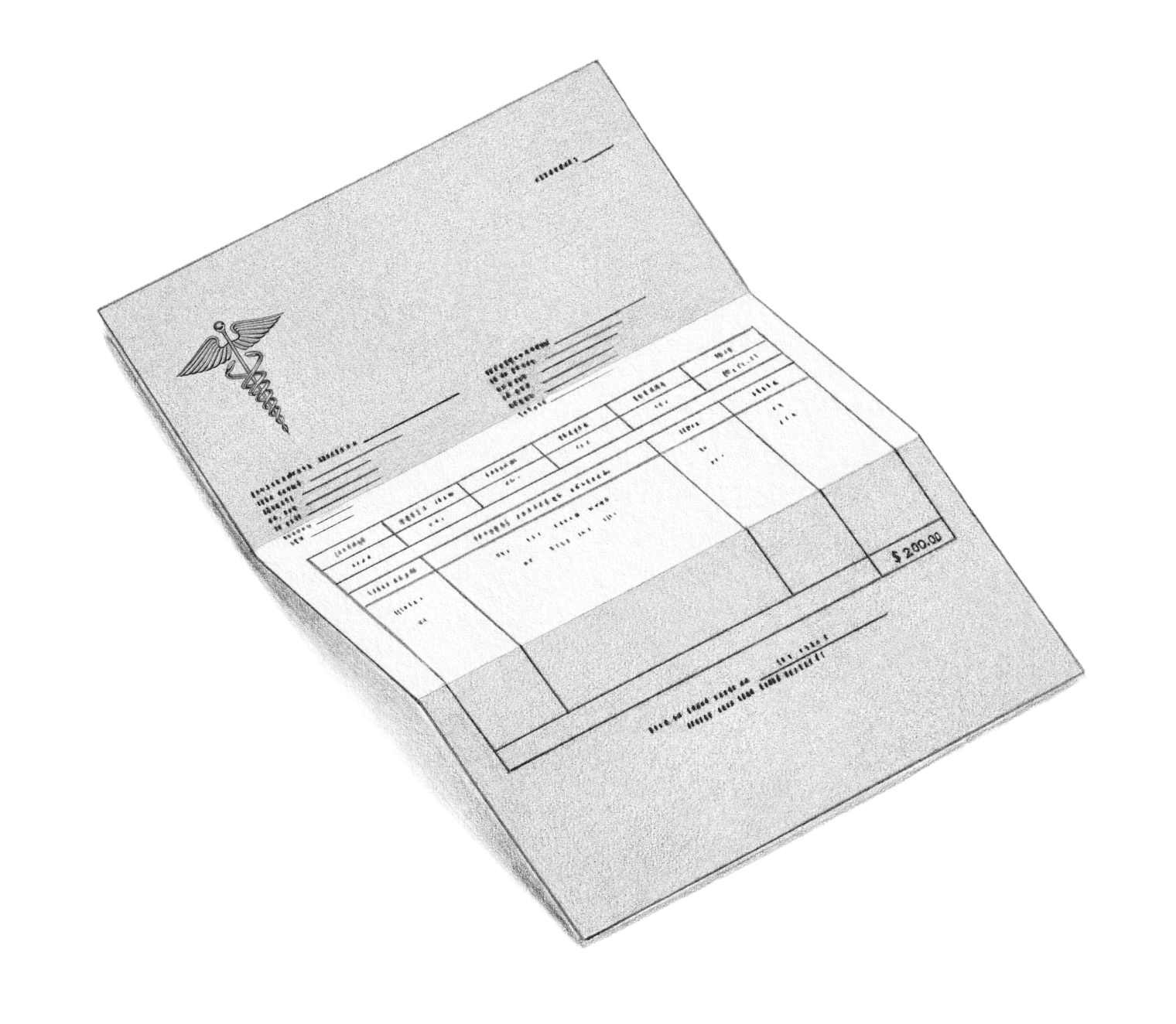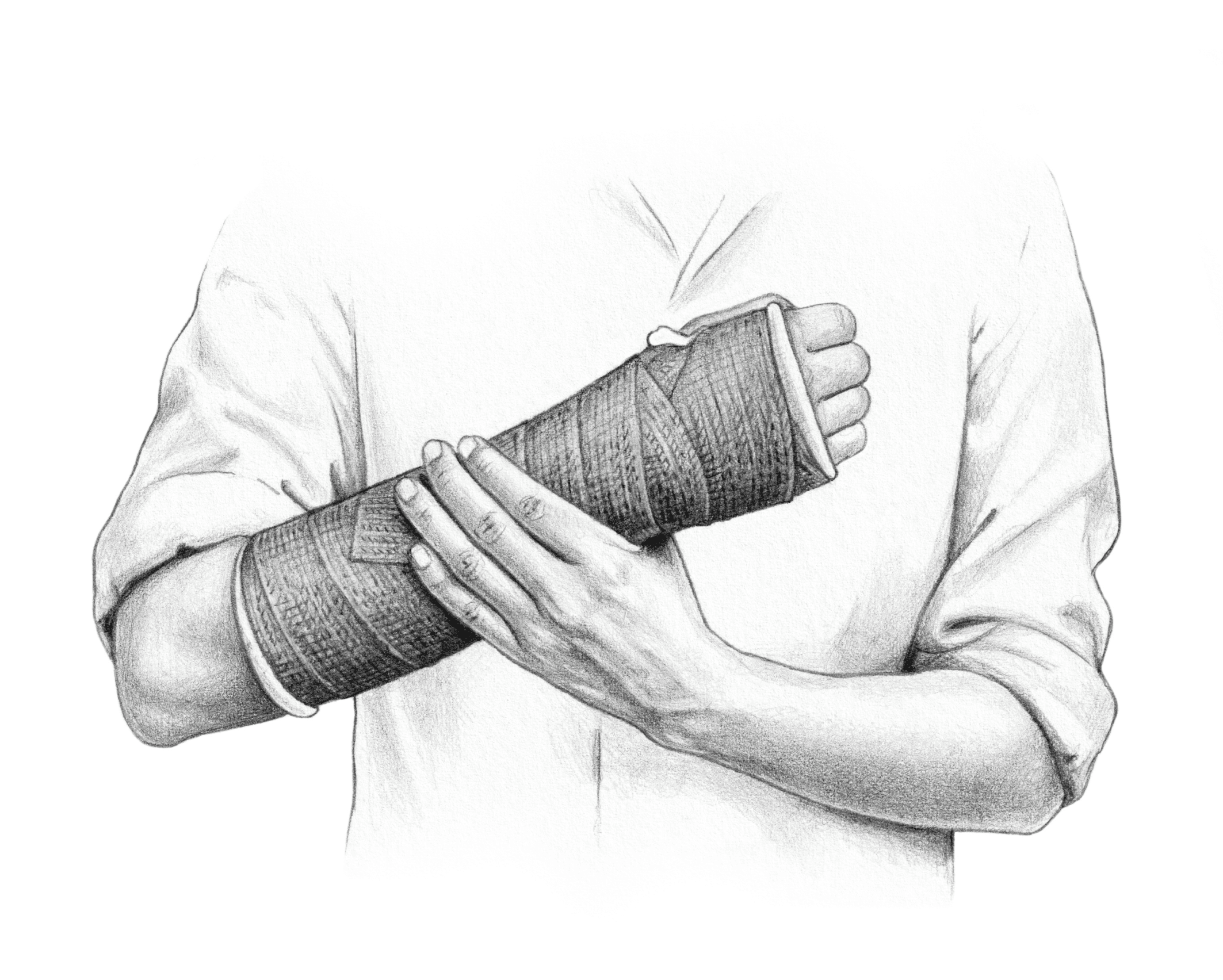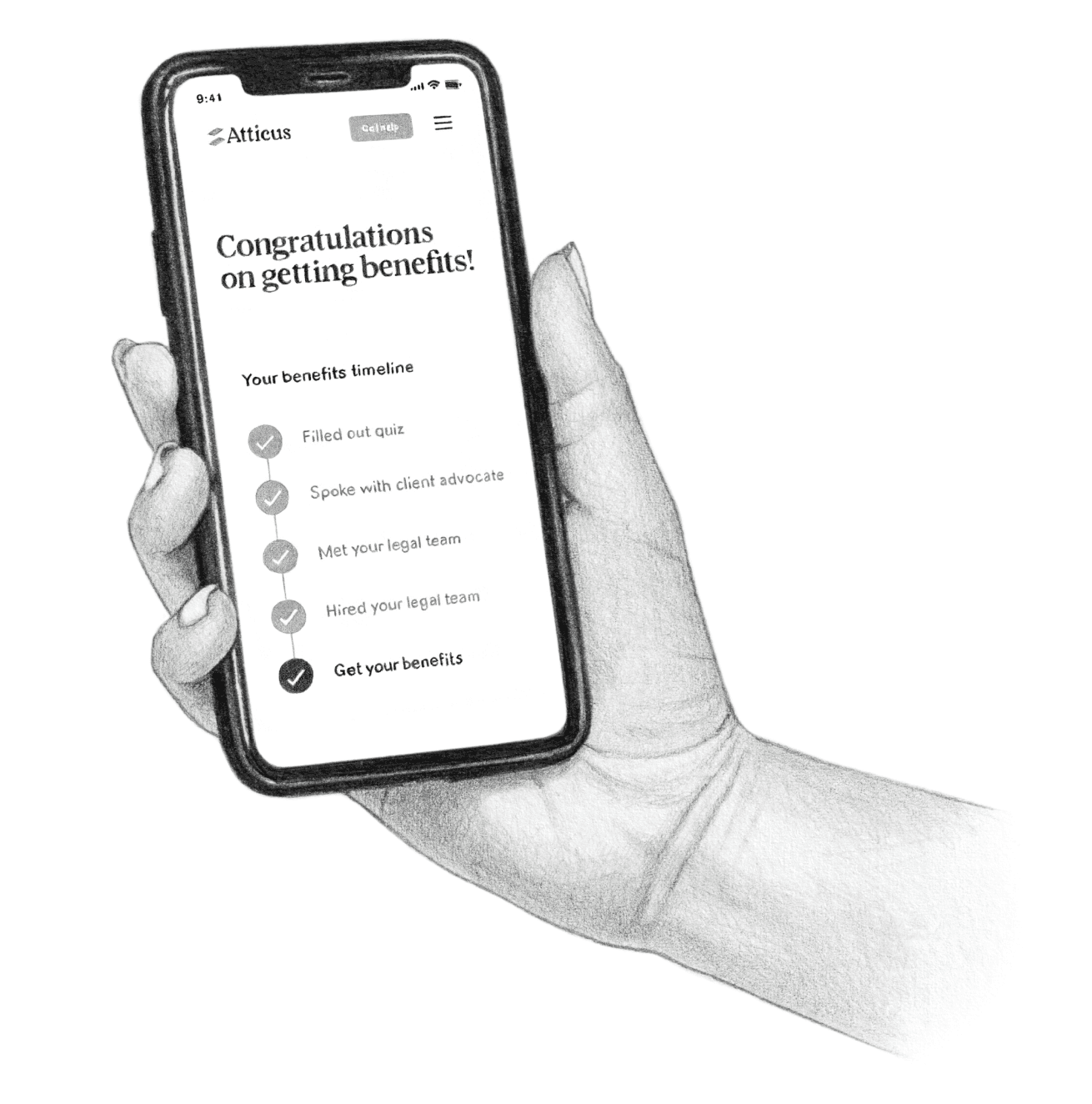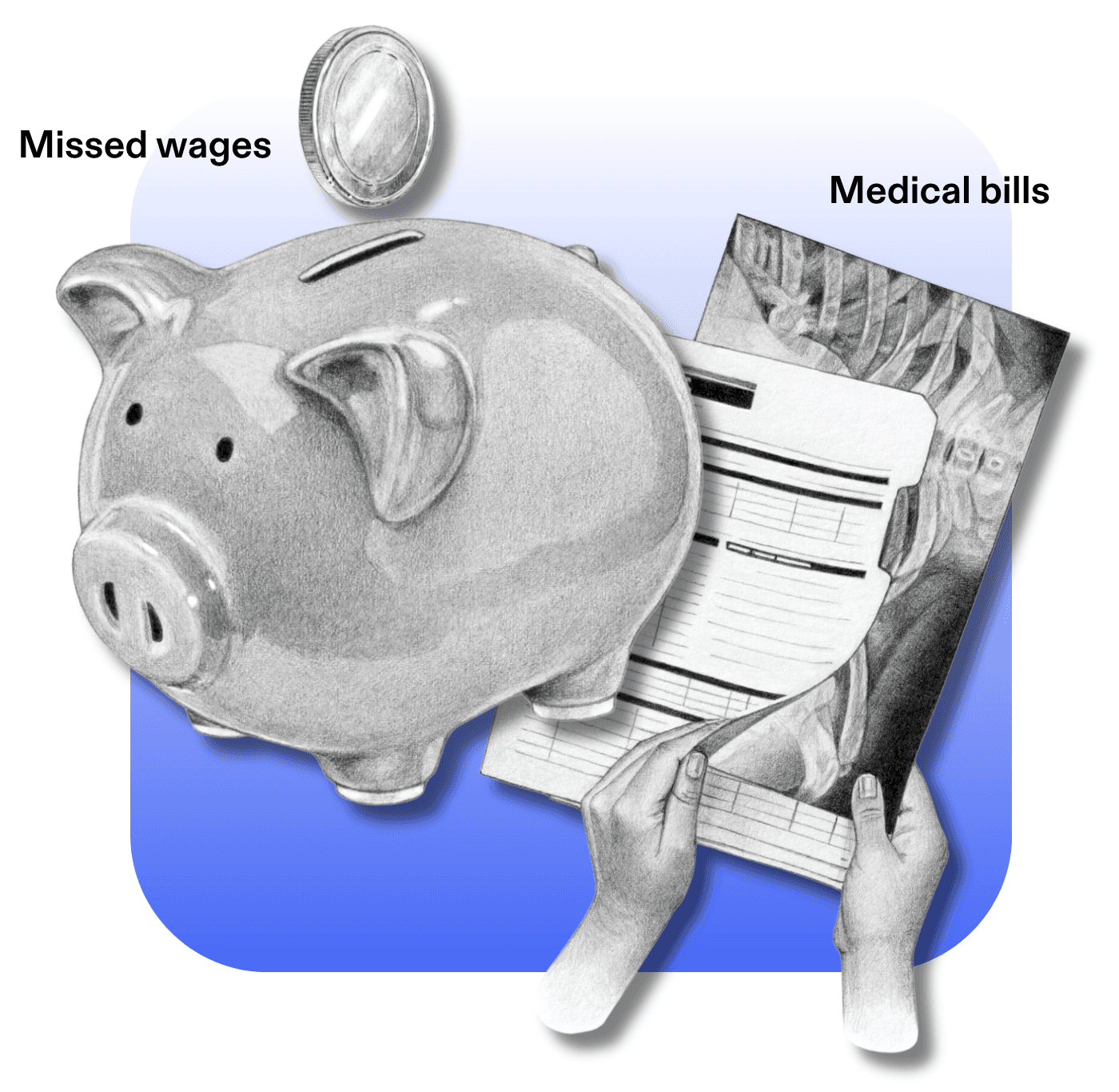Injuries from accidents and other one-time events, even if you're at fault
CONTINUE
If you get sick from harmful substances at work, like asbestos
CONTINUE
Existing conditions that are made worse due to your work
CONTINUE
Injuries from repeated actions, like a back injury from years of lifting boxes
CONTINUE
Any injury or illness that occurred while doing your job could qualify for benefits
CONTINUE
Tell your employer about your injury or illness as soon as possible. Write an email or a dated letter that says when you were injured and how the injury happened.

If you need emergency medical care, tell the hospital or doctor it was a work injury. Your employer may also refer you to a work injury doctor who's in their insurance network.

In most cases, your employer should file a claim for you. If approved, workers’ comp will pay you weekly benefits to cover lost wages while you're out of work. Your employer’s insurance will also pay for medical care.


You’ll eventually reach a point where you've recovered as much as possible. For many workers, this means you can return to work. If you have a permanent condition, you may qualify for long-term workers' comp benefits.

You're having trouble understanding workers' comp.
A lawyer will act as your translator for everything that your employer, insurers, and state organizations are doing.
Your employer is uncooperative.
Perhaps they aren’t filing your claim in a timely manner or they deny that your injury took place on the job. A lawyer can immediately step in and make them take action.
Your claim is denied.
A lawyer will appeal your claim by collecting evidence for you, talking to witnesses, getting you a settlement, or even representing you in court.
Your diagnosis is inaccurate.
You received a settlement offer.
A lawyer will help maximize your payout to ensure it covers lost wages, future medical care, and other expenses caused by your injury or time out of work. Studies have shown median payouts were 739% higher when a lawyer handled the claim.
You want to go back to work.
Doing any work outside of your doctor's treatment plan could result in lost benefits or insurance refusing to cover your medical bills. A lawyer will advise you on the best way to get back to work without jeopardizing your benefits.
Can I get fired for filing a workers’ comp claim?
Do I still get paid if I get injured at work?
Can I work and get workers’ comp at the same time?
Can I get workers’ comp if the injury was my fault?
Do all workers qualify for workers’ comp?
How long do workers' comp payments last?
Is workers’ comp taxable?

